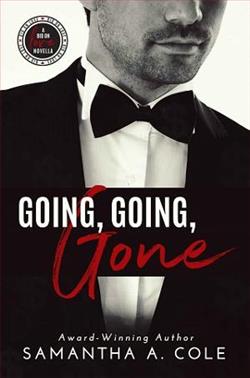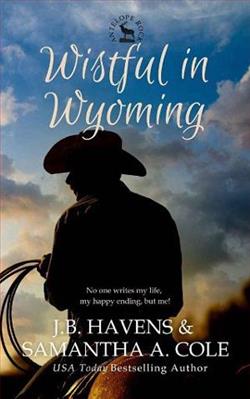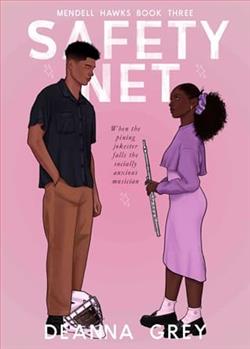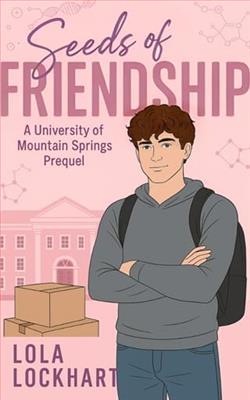Page 30 of A Shimla Affair
We had lost our mother, our father, our home, and were on the course of losing the hotel, our last remaining memory of home and togetherness. The talkies were a world away from our world, luring me in with impossible dreams—shining lights, fashionable costumes and the promise of fame. But what was right in front of me was real, and perhaps this was the true meaning of life. Perhaps I must face everything, feel every emotion; there should not be any escape. To escape sadness and sorrow, loss and death, trials and tribulations, would be to escape life itself.
Ratan Babu, struck with grief, followed all the rituals as he was told to almost mechanically. I heard some of his family callAfreen a bad omen that had brought this ill luck upon his family but he shut that down quickly by telling them clearly that he didn’t believe in such things.
While we were still at the cremation ground, I spotted more members of the Shimla Circle: Sood, Azad Bhai, Dr Bannerjee, and finally Guruji, who came and stood next to us. I had never seen Guruji outside before, and I wondered how much the British knew about him and if he should have stayed hidden. He was wearing his classic white khadi dhoti and kurta, exuding power and magnificence, his eyes looking much farther into the future than mine could ever do. He nodded at us briefly, taking his time to look at Noor, before folding his hands in the direction of the pyre, saying a prayer under his breath. Ratan Babu came and touched his feet in greeting, and Guruji patted him on the back.
When Sood came and stood by us, I saw Ratan Babu stiffen and give Sood an accusing look. ‘So, what about the guns now? You went in their pursuit. What will we do with them? My mother is dead!’
Sood kept a hand on Ratan Babu’s shoulder, pulling him closer. ‘They kidnapped that Hindu girl, what could one expect? But don’t worry … we will have our revenge. Your mother’s death will not go unpunished,’ he murmured.
‘Why didn’t they stop the riots?’ Ratan Babu asked Guruji, pain in his voice. ‘They knew that there was animosity between the Hindus and Muslims in town, why didn’t they do something? They had all the power, and yet—’
Guruji held Ratan Babu by the shoulders, before taking his face in his hands. He looked Ratan Babu in the eyes and then at the three of us, as if about to tell us a secret that only we would be privy to.
‘Let’s talk,’ Guruji said.
‘I met your father almost fifteen years ago,’ Guruji began, once we had all settled in the hotel. He looked at the three of us. ‘At the time, there was nothing common between us except the rage that bubbled within us. The moment they fired in Jallianwala Bagh, I, like your father, knew that my life would amount to nothing if I did not spend it in pursuit of justice. But that was our only point of commonality.
‘Your father was a rich businessman, with his finger in many trades: he had power, money, servants that ran around him, eager to do his bidding. Most of all, he had the ear of the British, who respected him because he was a rich man, unlike me. All I had were big dreams and ideas.’
He handed us a photograph, and I stared at it, too stunned to look away. It was our father, looking very formal in a Western suit and glasses, standing next to Guruji, who looked so much younger. Guruji had all his hair, and looked lean, tall and haggard in a thin kurta. They stood arm-in-arm.
‘You both had met?’ Noor asked, holding the photograph, unwilling to let go of it, her eyes transfixed.
‘Not just him, but his whole machinery! Prakash, his young secretary, excellent boy … Ravi, a brilliant strategist I have to say … you all were too young at the time, and you are women. There was no question of your involvement.
‘This picture was taken shortly after your father and I met. We spent the next four years planning and fighting for the Vidyut group, a bunch of young men who had come together because they had had enough of Britain’s tyranny and wanted to take our land back by force. The group never worked out, and disbanded within a few months; we fought amongst ourselvestoo much. But I learnt from it, and the Shimla Circle is a version of the steps I took with your father. Eventually, your father left to pursue other goals. He felt that we were not making much progress; and he wanted results faster. He started giving money to armed rebellions, funding robberies of British treasuries and destroying colonial symbols.
‘At the time, I believed his actions to be too aggressive: if things went wrong, my poverty would ensure that I would be hanged first. He could shield himself with money. But now I realize that he had been right. Bold steps must be taken if we are to find freedom. And so, the Viceroy must be killed!’
Pin-drop silence followed Guruji’s pronouncement. So silent that I could even hear the small ripples the chai made in my cup. The setting sun cast golden hues through the windows in the salon where we sat. Birds chirped outside, happy to see the end of the storm. Apart from the occasional noise of the servants working outside, the salon was quiet.
‘The Viceroy must be killed?’ Noor repeated. ‘You must be out of your mind!’
‘No need to appear so sceptical—it is by no means an original idea! For decades, people like me have been trying their hand at the ultimate kill; to bring down that one man that would overthrow the Raj once and for all. In Calcutta, not a day passed when a new British official was not made a target … and they deserved it, well and truly. They sent our brothers to jail, gave them death penalties, under the guise of ‘law’ but there was no law, and there still isn’t. There is just despotism.
‘My nephew, flogged and beaten to death in jail, was caught as an informant … on two occasions, India was just one stroke of luck away from the Viceroy being killed. Each time, fate intervened, and the Viceroy of that time was saved. Dacoities in trains, gathering arms was the order of the day. You were not considered a man if you could not fire a gun. Evenwomen—two sixteen-year-old girls—went up and shot a British Superintendent straight in the face. Did you know that? That year, we put uptheirportraits in town, instead of Maa Kali.
‘But these smaller acts had their limitations. What we needed, all this time, was one quick, cleverly planned coup. The Viceroy is the greatest symbol of the Raj, and consequently, his killing is the greatest humiliation that could be inflicted on them. North India lies in the hands of three men: the Viceroy, the Commander-in-Chief and the Governor of Punjab. Once you have the Viceroy, the other two will bolt, and the government will be easily toppled. The Germans are willing to help us rise and overthrow them, especially at this time. Their support will pour in as soon as they see a revolt rising. And then, Britain’s downfall will begin. We will be a new country within months, free to take the reins of our destiny in our own hands!’
Guruji went up to Ratan Babu, putting his hands on Ratan Babu’s shoulders.
‘This is the right, and perhaps, only path forward—for revenge, atonement, and freedom. You made an oath to us all those years ago. Will you stand by it?’
Ratan Babu looked anguished. He folded his hands, bowing his head.
‘Why didn’t you tell us before? About our father?’ Afreen asked.
‘It was a long time ago. I looked to your father for guidance, but he did not have the patience for men like me. Our lives had come together once, but as I said, I was an idealistic, poor man, with no means to realize that passion. Yet, I remembered everything he taught me. Now, the Shimla Circle holds a lot of power and thanks to Ratan Babu, it brought me in contact with you. Life has come a full circle, and we may be able to end where we started.’
‘But, I don’t understand it. How does the Shimla Circle work exactly? How many people?’ Noor’s voice seemed to crack from the weight of all the burdens the last days had brought upon us all, the brunt of which fell upon her as the eldest.
‘Hundreds spread across the hills and Punjab. Every five to ten people are divided in a group, with its own leader. The work is of two kinds: if you can hold a gun, military work. If you cannot, civil work. When we let someone join, they get a master, and this new member trains for six months. What I learnt in Calcutta, I implement here.’
‘And you did that too?’ Noor asked Afreen, a hint of accusation in her voice.
Afreen nodded. ‘Azad Bhai was my master.’
‘You assume boldly, and mistakenly, that we want to participate in your activities,’ Noor said, addressing Guruji.















